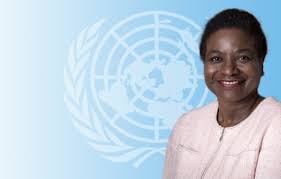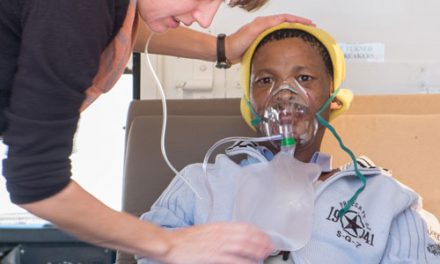
COVID-19 to have catastrophic impact on women’s health – UNFPA

The United Nations Population Fund (UNFPA) this week in their latest data revelaed that the number of women unable to access family planning, facing unintended pregnancies, gender-based violence could sky-rocket by millions as the COVID-19 pandemic rages on.
The research revealed the enormous scale of the impact COVID-19 is having on women as health systems become overloaded, facilities close or only provide a limited set of services to women and girls, and many choose to skip important medical check ups through fear of contracting the virus.
Dr. Natalia Kanem, UNFPA Executive Director said this new data shows the catastrophic impact that COVID-19 could soon have on women and girls globally. The pandemic is deepening inequalities, and millions more women and girls now risk losing the ability to plan their families and protect their bodies and their health.
“Women’s reproductive health and rights must be safeguarded at all cost, the services must continue, the supplies must be delivers and the valuable must be protected and supported,” she said.
The data has revealed that 47 million women in 114 low and middle-income countries may not be able to access modern contraceptives and 7 million unintended pregnancies are expected to occur if the lockdown carries on for 6 months and there are major disruptions to health services. For every 3 months the lockdown continues, up to an additional 2 million women may be unable to use modern contraceptives.
Other key projections show that 31 million additional cases of gender-based violence can be expected to occur if the lockdown continues for at least 6 months. For every 3 months the lockdown continues, an additional 15 million extra cases of gender-based violence are expected.
According to the UNFPA, due to the disruption of programmes to prevent female genital mutilation in response to COVID-19, 2 million female genital mutilation cases may occur over the next decade that could have been averted.
COVID-19 will disrupt efforts to end child marriage, potentially resulting in an additional 13 million child marriages taking place between 2020 and 2030 that could otherwise have been averted.
Meanwhile, UNFPA is working with governments and partners to prioritise the needs of women and girls of reproductive age and to respond urgently during the challenging public health emergency. The research was conducted by UNFPA, with contributions from Avenir Health, Johns Hopkins University (USA) and Victoria University (Australia.)













































